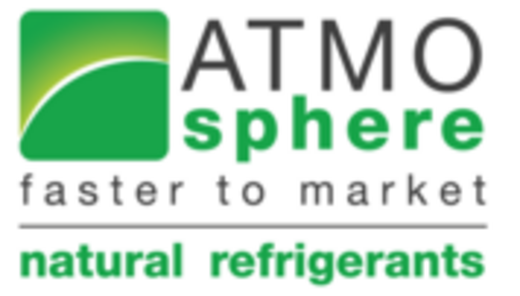Ejemplos de buenas prácticas
Resultados 31 a 40 de 146
Buenas prácticasN2O/CO2 mixtures for applications below -50 °C
Together with a manufacturer of pharmaceutical freeze driers, a major independent compressor manufacturer and lubrication company, IKKU developed a unique refrigeration system for temperatures down to -80 °C based on the application of N2O/CO2 mixtures …
Buenas prácticasNew ‘Smart Store’ paves the way for 21st century supermarkets
New “Smart Store” will work as Danfoss’ test center for energy efficiency technology. ‘The Smart Store’ is expected to be approximately 50% more energy efficient compared to a typical supermarket with a first-generation CO2 refrigeration system. - Runs off sustainable energy sources - Reuses the excess heat created by cooling cases, reducing supermarket heating costs by up to 90% - Not only operates as a functioning supermarket, but is also a development center for testing new technology Scalable technologies The installations and technologies in the supermarket are scalable. They can be applied in the smallest store up to the biggest hypermarket. The supermarket cooling (refrigeration and comfort cooling) systems run exclusively on natural refrigerants (CO2). CO2-based refrigerants do not deplete the ozone layer and have the lowest possible Global Warming Potential (GWP) score. In addition, CO2 refrigerants outperform traditional HFC-systems when it comes to energy efficiency in different weather conditions. The supermarket is equipped with a heat recovery unit capturing excess heat from the cooling systems to provide space heating for the entire store as well as the surrounding community through the district heating network. The heat recovery unit, can by re-using the excess heat from the cooling system, reduce the external heat requirement with up to 89,7%. Furthermore, the energy pack can supply additional heating and cooling when needed. Smart energy systems applied 100 KW solar panels on the roof help to optimize store operations. On sunny days, solar energy can be accumulated in the freezers. Turning the temperature in the freezers further down from e.g., -18 to -25 help accumulate solar energy ( while reducing battery storage). When the solar panels are less efficient due to no sun the temperature rises back to normal settings. Co-developing with customers The supermarket has two separate refrigeration systems installed that run independently of each other. Therefore, operations of a supermarket continue while Danfoss co-develops new solutions with customers. And when future applications are being tested, the cooling cabinets and freezers stay cool. …
Buenas prácticasOilfree Propane chiller
Using the latest oilfree turbo compressor technology developed by a Swiss project partner, the IKKU partnered with a German hydrocaron chiller manufacturer to develop oilfree propane chillers making hydrocarbon refrigeration systems even more environmentally friendly …

Buenas prácticasPolicymaking: ATMOsphere: The business case for natural refrigerants
Organized and hosted by Shecco, ATMOsphere are a series of international annual events bringing together stakeholders involved in natural refrigerant-based technologies. Since 2009, 30 ATMOsphere events have taken place in Europe, Asia, Australia and America. ATMOsphere events assemble key industrial, public and political stakeholders, as well as end-users to discuss natural refrigerant-based technologies. The event uses market trends and regulatory sessions, consumer and supplier panels, technology case studies, workshops and networking opportunities to explore and promote the business case for natural refrigerants. …
Buenas prácticasPolicymaking: Improving safety standards for natural refrigerants
Upon request of the European Commission to help draft the F-Gas Standardization Request, ECOS actively raises awareness of the large obstacles to the use of low-GWP refrigerants within the same standards permitting large quantities of climate damaging HFCs. In realizing that urgent changes’ in standards are necessary to ‘achieve the EU phase-down targets’, ECOS is engaging with all relevant stakeholders in order to promote the market introduction of natural refrigerants. Whilst interest in the use of natural refrigerants in commercial & industrial RAC appliances is growing, market and product development is obstructed by the charge size limits given in product safety standards. …
Buenas prácticasPolicymaking: National HCFC phase out management plan
In order to achieve a 65% reduction of HCFCs by 2025, the Bangladesh Department of Environment (DoE) is planning Stage 2 of its HCFC Phase-Out Management Plan (HPMP), funded by the Multilateral Fund. Bangladesh’s HPMP Stage 1 includes an investment component and a technician and customs training component. An 18% reduction in HCFCs after the successful completion of Stage 1 by the end of 2017 is expected, after which HPMP Stage 2 will commence. To achieve the 35% phase-out target in 2020 and in preparation for the 65% target by 2025, set forward in the Kigali Amendment to the Montreal Protocol, the DoE is currently preparing HPMP Stage 2. As a signatory to the Vienna Convention and the Montreal Protocol, Bangladesh inaugurated its Country Programme to phase-out the consumption of Ozone Depleting Substances (ODS) in 1994, with the formation of the National Ozone Unit in 1996. The Country Programme proposed the introduction of regulatory measures, spreading awareness and information as well as training and funding for technological conversions to comply with the country’s climate goals. …

Buenas prácticasPolicymaking: The Australian Refrigeration Association stirs up the Federal Department of the Environment
The Australian Refrigeration Association (ARA) is preparing its third submission to the Federal Department of the Environment regarding the Review of the Ozone Protection and Synthetic Greenhouse Gases Management Act (OPSGG MA). In its previous 2 submissions, ARA was supported by over 70 of the leading cooling and refrigeration organizations. Now ARA is calling upon the public to show its support for the third submission. The submissions focuses on the reduced use of hydrofluorocarbon (HFC) refrigerants. ARA estimates that the transition to natural refrigerants may reduce the cost of HVACR services in Australia by up to $10 B per annum, and reduce national GHG emissions by 7%. ARA is encouraging individuals to write a unique response about why they believe the Federal Department of Environment should prioritize this thematic. The key recommendations include: Banning the use of HFC’s in new vapour compression systems with a charge >5 kg by 2025. Compulsory use of low GWP refrigerants in all new vapour compression systems with a charge <0.150 kg by 2025. The introduction of a series of mechanisms to deliver minimum energy efficiency benchmarking, skills based refrigeration licensing (as opposed to refrigerant based licensing), alignment of WH&S legislation making state and federal WH&S legislation nationally consistent. …

Buenas prácticasPolicymaking: The Natural Voice- A global call to reduce greenhouse gases by natural refrigerants
Introduced by Shecco in 2009, the Natural Voice is a global statement open to industry, associations, non-profit organizations and individuals supporting the potential of natural refrigerants in replacing potent greenhouse gases. At present, the Natural Voice has 109 signatories from a range of sectors and industries. The statement will be presented to national governments and international climate negotiators in the near future to build the basis for developing natural refrigerant initiatives around the world. The Natural Voice demands national governments to remove (inter)national trade barriers and to revise safety standards, codes and legislation that restrict the use of natural refrigerants without merit. Furthermore, it calls upon national governments to provide (non-) financial support for the research and promotion of natural refrigerants, and to facilitate the technology transfer from developed to developing countries. …

Buenas prácticasPolicymaking: The Natural Voice- A global call to reduce greenhouse gases by natural refrigerants
Introduced by Shecco in 2009, the Natural Voice is a global statement open to industry, associations, non-profit organizations and individuals supporting the potential of natural refrigerants in replacing potent greenhouse gases. At present, the Natural Voice has 109 signatories from a range of sectors and industries. The statement will be presented to national governments and international climate negotiators in the near future to build the basis for developing natural refrigerant initiatives around the world. The Natural Voice demands national governments to remove (inter)national trade barriers and to revise safety standards, codes and legislation that restrict the use of natural refrigerants without merit. Furthermore, it calls upon national governments to provide (non-) financial support for the research and promotion of natural refrigerants, and to facilitate the technology transfer from developed to developing countries. …

Buenas prácticasPolicymaking: The Natural Voice- A global call to reduce greenhouse gases by natural refrigerants
Introduced by Shecco in 2009, the Natural Voice is a global statement open to industry, associations, non-profit organizations and individuals supporting the potential of natural refrigerants in replacing potent greenhouse gases. At present, the Natural Voice has 109 signatories from a range of sectors and industries. The statement will be presented to national governments and international climate negotiators in the near future to build the basis for developing natural refrigerant initiatives around the world. The Natural Voice demands national governments to remove (inter)national trade barriers and to revise safety standards, codes and legislation that restrict the use of natural refrigerants without merit. Furthermore, it calls upon national governments to provide (non-) financial support for the research and promotion of natural refrigerants, and to facilitate the technology transfer from developed to developing countries. …
